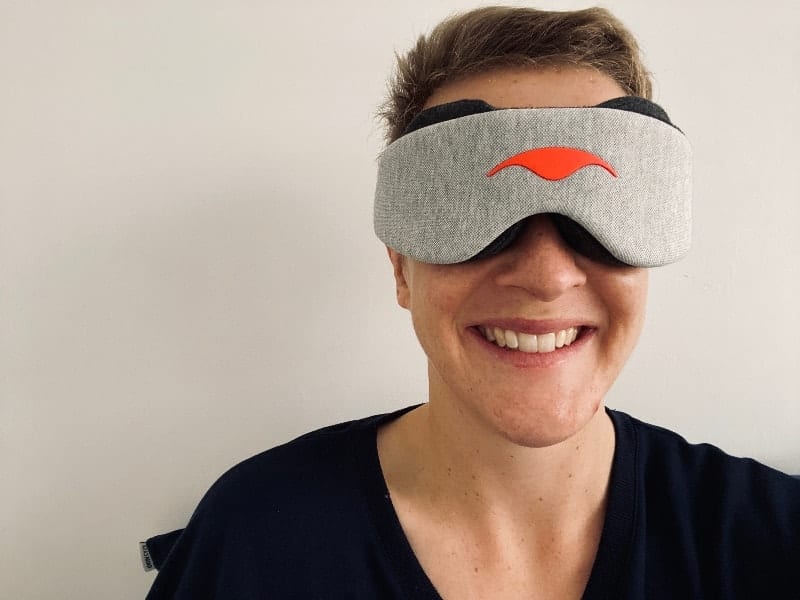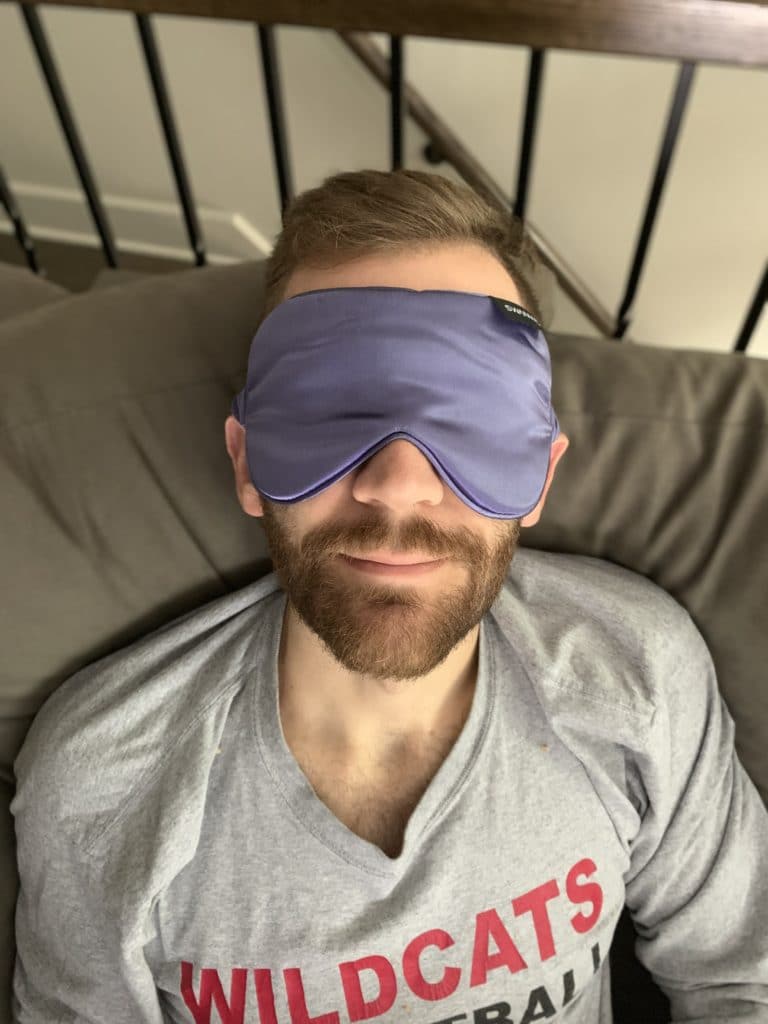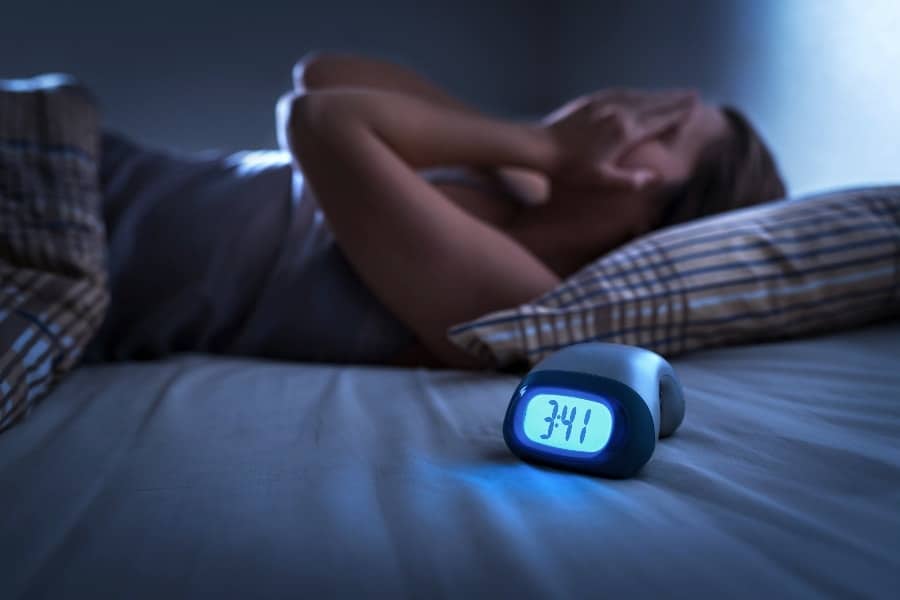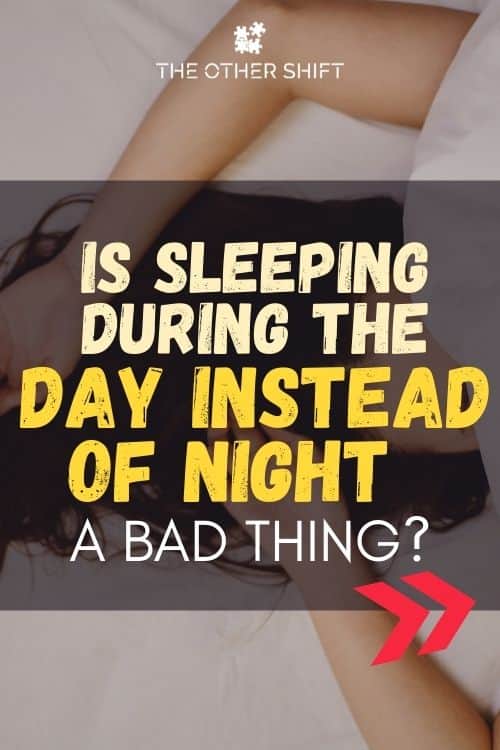Disclosure: This page may contain affiliate links, meaning we receive a commission if you decide to make a purchase through our links, but this is at no additional cost to you. Please read our disclosure and privacy statement for more info.
It’s 1:00 pm and you can barely keep your eyes open. You stayed up way too late the night before, forgot to eat breakfast and you’re begging for an IV line of coffee to try and stay awake. Or you’re on the graveyard shift and just finished up at 6 am and you’re now pumped about putting your head on the pillow as the sun’s rising! Whether out of pleasure or necessity, there are many factors fueling one’s desire or need to sleep during the day – but is it bad for you?
There are many reasons for sleeping during the day, inclusive of casual napping, shift work or chronic health conditions. Sleeping for extended periods during the day is not recommended if it can be avoided. Shorter periods of day sleep are fine, ensuring they don’t impact the quality and duration of nighttime sleep.
In this article, we’ll address the question of, “is sleeping during the day instead of night, bad?” by breaking down the main factors and issues surrounding it. Things like, why we as humans are traditionally conditioned to sleep at night, the reasons why people sleep during the day, how it can impact your overall health and ways to maximize daytime sleep if you simply don’t have any other choice.
If you’re interested in the best blue light blocking glasses, which we use, you can find them on Swanwick Sleep here .
.
Your Body Clock and Sleep
Let’s start with the science behind why nighttime sleep is the traditional go-to practice. Our bodies have an internal clock that regulates our sleep cycle, and it controls how we feel. Are we sluggish and ready for bed? Are we refreshed and awake?
“An internal body clock regulates your sleep cycle, controlling when you feel tired and ready for bed or refreshed and alert.”
~SleepFoundation.org, “Why Do We Need Sleep”
Our circadian rhythm is the 24-hour cycle that runs our body clock, guiding us from the moment we wake up to when it’s time to go to sleep, and our slow but steady descent into tiredness in between. The University of Oxford has a quick and easy explainer on this natural phenomenon and the role it plays in our daily lives – What Makes You Tick: Circadian Rhythms.
The other driving factor behind when we feel more naturally inclined to sleep is light. Good old fashioned natural light, from the sun (see where we’re going here?).
When our eyes are exposed to natural (or artificial) light, it signals the brain whether it is day or night. As it gets darker outside, our bodies release a hormone called melatonin, which makes us tired.
Similarly, as it gets lighter each morning, our bodies release another hormone, cortisol, to help boost our energy and stay awake. To make a long explanation short, sleeping at night is something our body is naturally programmed to do. So, if science tells us sleeping during the day is not natural, then why do people still do it?
The video below explains a quick little tip night shift workers should consider adopting.
Reasons for Sleeping During the Day
There are several reasons a person may sleep during the day. It can take the form of a quick nap to make up for a long night of restless sleep, or it may be a vital stretch of 6-8 hours for a shift worker working the graveyard roster.
In other cases, chronic daytime sleep can be caused by a variety of medical conditions that should be addressed by a medical professional. Let’s take a closer look at each one individually.
General Fatigue
You don’t have to be a sleep specialist to know that the less sleep you get, the more tired you’ll likely feel. As we discussed earlier, it’s basic biology and the amount of sleep a person needs changes throughout their lifetime. But as a general rule, 7-9 hours is what’s required. (source) Are you getting this or are you feeling constantly fatigued?
Research shows nearly 30 percent of Americans are getting less than six hours of sleep per night. That can make an afternoon nap seem pretty appealing.
The keys to success here are timing and length, to make sure you don’t negatively impact your night sleep. Experts recommend keeping your nap to 30 minutes or less to get the most immediate feeling of alertness and the least amount of sluggishness afterward.
“A 10-minute afternoon nap…. is shown to produce a number of immediate gains, including increased energy and cognitive function. The benefits of a 10-minute nap can last as long as 155 minutes.”
Sleep.org
Do you have an eye mask to boost your nap? We love these ones which we have pictured below. If you’d like to see where we bought them from, click on each image.


Shift Work
The Bureau of Labor Statistics says nearly 15 million Americans work a permanent night shift or rotate in and out of night work. That is a large sector of society predisposed to excessive fatigue, decreased cognitive abilities and a variety of physical and mental health issues.
The need for solid daytime sleep is especially crucial for these folks. In fact, the Cleveland Clinic warns against a health condition known as “Shift Work Sleep Disorder,” characterized by:
- Excessive sleepiness
- Brain fog
- Trouble concentrating
- Moodiness
- Headaches (this video may help reduce the throbbing pain in your head)
We have more on how to maximize daytime sleep for those who have no other choice a little further down in this article.
Related: Shift Work Sleep Disorder (SWSD) – What Is It and How to Avoid It?

Medical Conditions
The American Sleep Association defines Excessive Daytime Sleepiness, or EDS, as “having an increased pressure to fall asleep during typical wake hours.” It can also be referred to as “hypersomnia” and is usually a symptom of an underlying issue or condition.
The Mayo Clinic lists the following conditions as ones that may contribute to excessive daytime sleepiness.
- Insomnia – you have difficulty falling asleep or staying asleep throughout the night.
- Sleep apnea – you experience abnormal patterns in breathing while you are asleep. There are several types of sleep apnea. (Keep reading – Can Working Night Shift Cause Sleep Apnea?)
- Restless legs syndrome (RLS) – a sleep movement disorder. Restless legs syndrome, also called Willis-Ekbom disease, causes an uncomfortable sensation and an urge to move the legs while you try to fall asleep.
- Narcolepsy – a condition characterized by extreme sleepiness during the day and falling asleep suddenly during the day.
According to the Sleep Foundation, those suffering from mental health conditions like depression, bipolar disorder, general anxiety or post-traumatic stress disorder may also experience extreme fatigue during the day.
Curious if you should be concerned about your sleep habits? Here is a link to the Epworth Sleepiness Scale, which is used to assess daytime sleepiness. The higher the score (specifically 10 or higher), the higher the concern that there may be an underlying condition fueling the excessive fatigue. This can be a helpful tool, however if you feel something may be wrong, it’s always best to contact a medical professional.
Physical and Mental Impact of Daytime Sleep
We’ve established our bodies are more naturally inclined to sleep at night and we’ve gone deeper into some of the many reasons people may sleep during the day. Now, we’ll take a closer look at the pros and cons of daytime sleep.
Let’s start with the negative effects on the body and mind (we like to end things on a high note here!). Unfortunately, the list of potential negative side effects when it comes to daytime sleep is far longer than the positive effects, but it really boils down to your individual needs and lifestyle.
For example, shift workers often have no choice but to sleep for long periods of time during the day. It’s a practice that goes against the body’s internal time clock and circadian rhythm, and can potentially lead to trouble falling asleep, excessive daytime fatigue, headaches, trouble concentrating or memory issues.
Tiredness and lack of focus can increase the risk of significant health and safety problems for shift workers, including:
- Accidents
- Making errors at work
- Injuries
- Heart disease
- Insulin resistance, which increases the risk of diabetes
- Depression
- Drug and alcohol misuse
- Metabolic syndrome, which increases the risk of heart disease, stroke, and diabetes
- Ulcers
~The Department of Homeland Security
For those who don’t do shift work or have an underlying medical condition, daytime sleep more often takes the form of a nap. As mentioned previously, the potential impact of a nap (good or bad) is based on length and time of day. The goal is not to let that daytime sleep impact your night sleep.
This study, published in the National Library of Medicine, found “A nap of less than 30 min duration during the day promotes wakefulness and enhances performance and learning ability. In contrast, the habit of taking frequent and long naps may be associated with higher morbidity and mortality, especially among the elderly.” Basically – nap too long and you may feel even more tired and groggy for the rest of the day.
Timing a nap is also crucial to its effectiveness. The Mayo Clinic recommends napping before 3:00pm to avoid interrupting nighttime sleep. The last thing you want to do is sleep too late in the day, not be able to fall asleep at night, then need another nap the next day to compensate for the excessive fatigue. A cycle you do not want to get into.
Daytime sleep is not all bad though.
The Mayo Clinic also lists the following potential benefits of a well-timed nap:
- Relaxation
- Reduced fatigue
- Increased alertness
- Improved mood
- Improved performance, including quicker reaction time and better memory
Some people also feel more productive during the quiet overnight hours and prefer to work while the rest of the world sleeps. Again, so much of this comes down to personal preference and what works best for YOU as an individual.
Maximizing Daytime Sleep
For those who have no choice but to sleep during the day, there are ways you can maximize the potential benefits and minimize the potential negative effects. Some self-reflection and planning can go a long way in ensuring you are as well-rested as possible, even while battling biological and environmental factors.
- Create a sleep routine and stick to it (the video below shows you how to do this)
- If napping, keep it short and in the early afternoon. However, important to note that individual factors like your need for sleep, your age and medication use can also play a role in the best time of day to nap. (The Mayo Clinic)
- Maintain a healthy diet and exercise
- Try a probiotic – here is why they matter
- Create an environment conducive to sleeping. Installing blackout blinds, using a white noise machine and keeping the temperature cool can all help you get the most out of sleeping during the day.
- Minimize distractions. Silence your devices, avoid blue light (we use these glasses to do this), put a note on the door and ask any roommates or family members to kindly keep the noise down. It can also be tough to block out the anxiety or stress of the day, so a quick meditation or breathing exercises can help clear your mind before you try and sleep.
In summary, is sleeping during the day really that bad for you? To sum it all up, the research suggests sleeping during the day for long periods of time is not ideal. However, as we’ve mentioned previously, the decision of when to sleep lies more with your own personal needs, health and lifestyle. It may be worth rephrasing the question to say, “Is sleeping during the day instead of night bad, FOR ME?”
Do a bit of self-reflection and really think about why you’re sleeping during the day to begin with, what you’re hoping to get out of it, the potential consequences that come with it and the potential side effects of NOT doing it. Whatever you decide, we hope this article has given you the information, perspective and guidance needed to consider all sides of the daytime sleep debate.
Cheers,

Disclosure: This page may contain affiliate links, meaning we receive a commission if you decide to make a purchase through our links, but this is at no additional cost to you. Please read our disclosure and privacy statement for more info.

Recent Posts
An examination of the night shift professions, that while sometimes underappreciated, are necessary for civilization, in its current form, to exist. A city can be thought of as a machine. Each...
Culminated from an exhaustive yet well-funded journey into the night, this article will prepare you for life outside of work while being a denizen of the dark. During days off, night shift...

